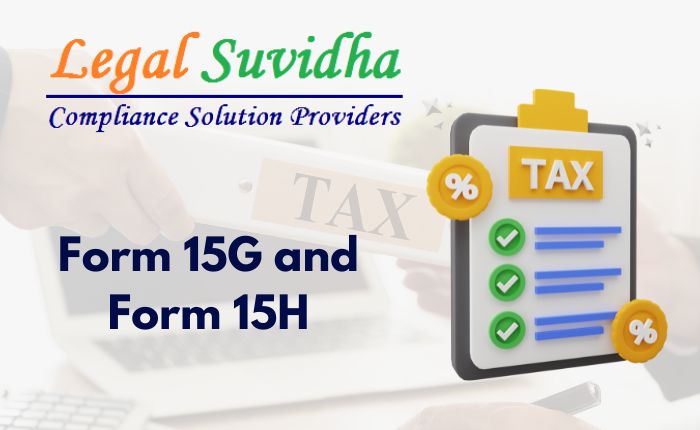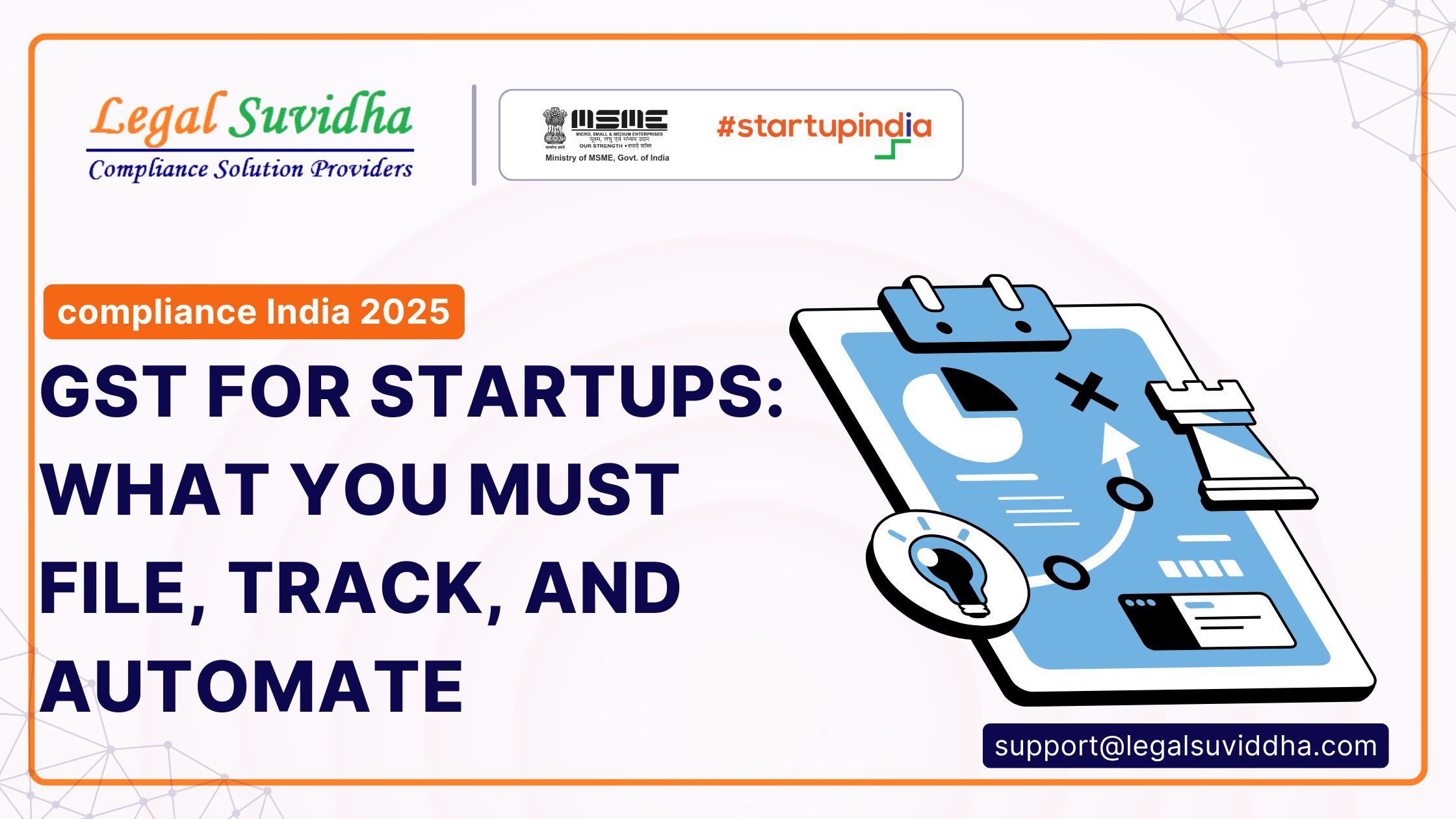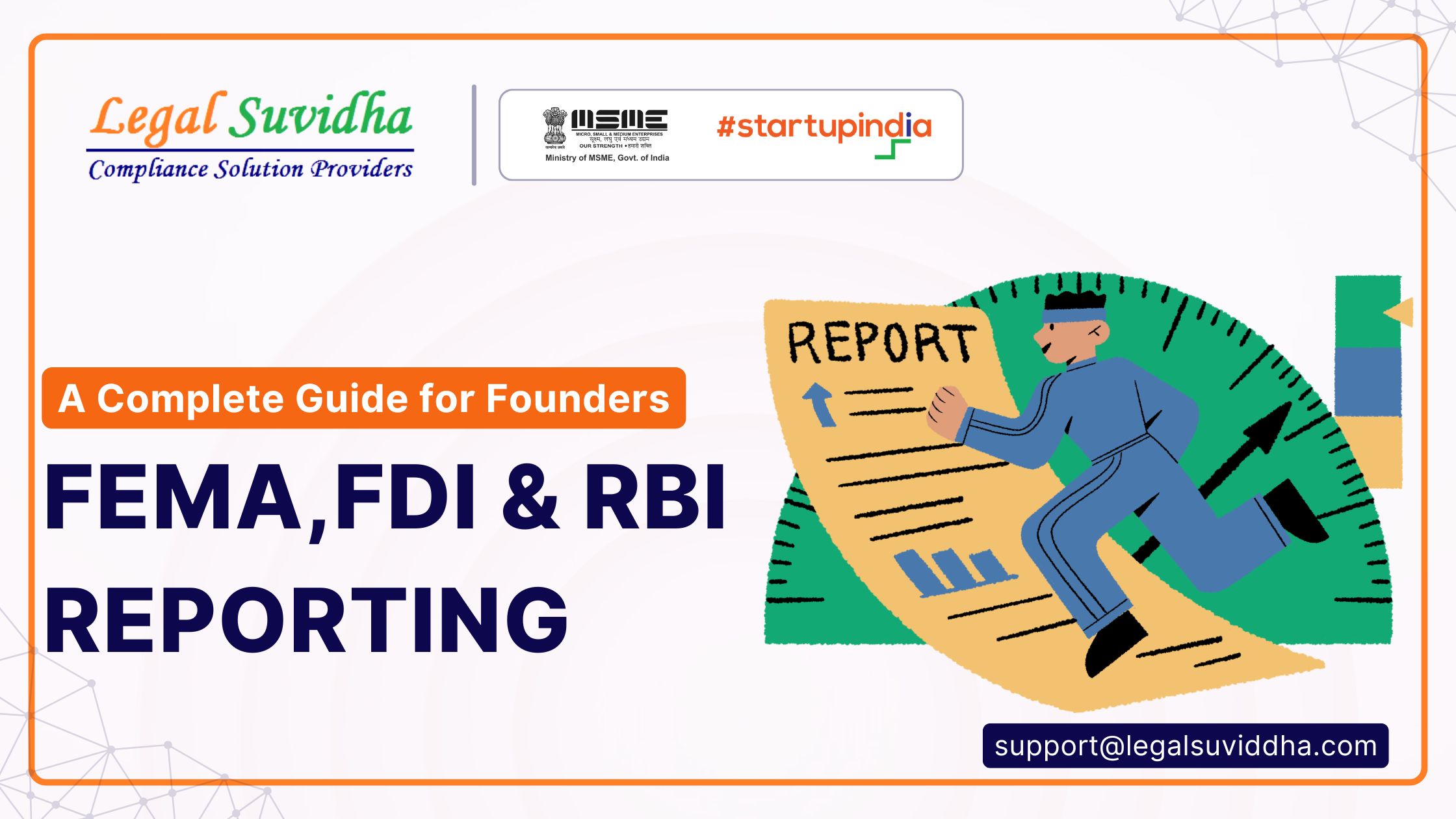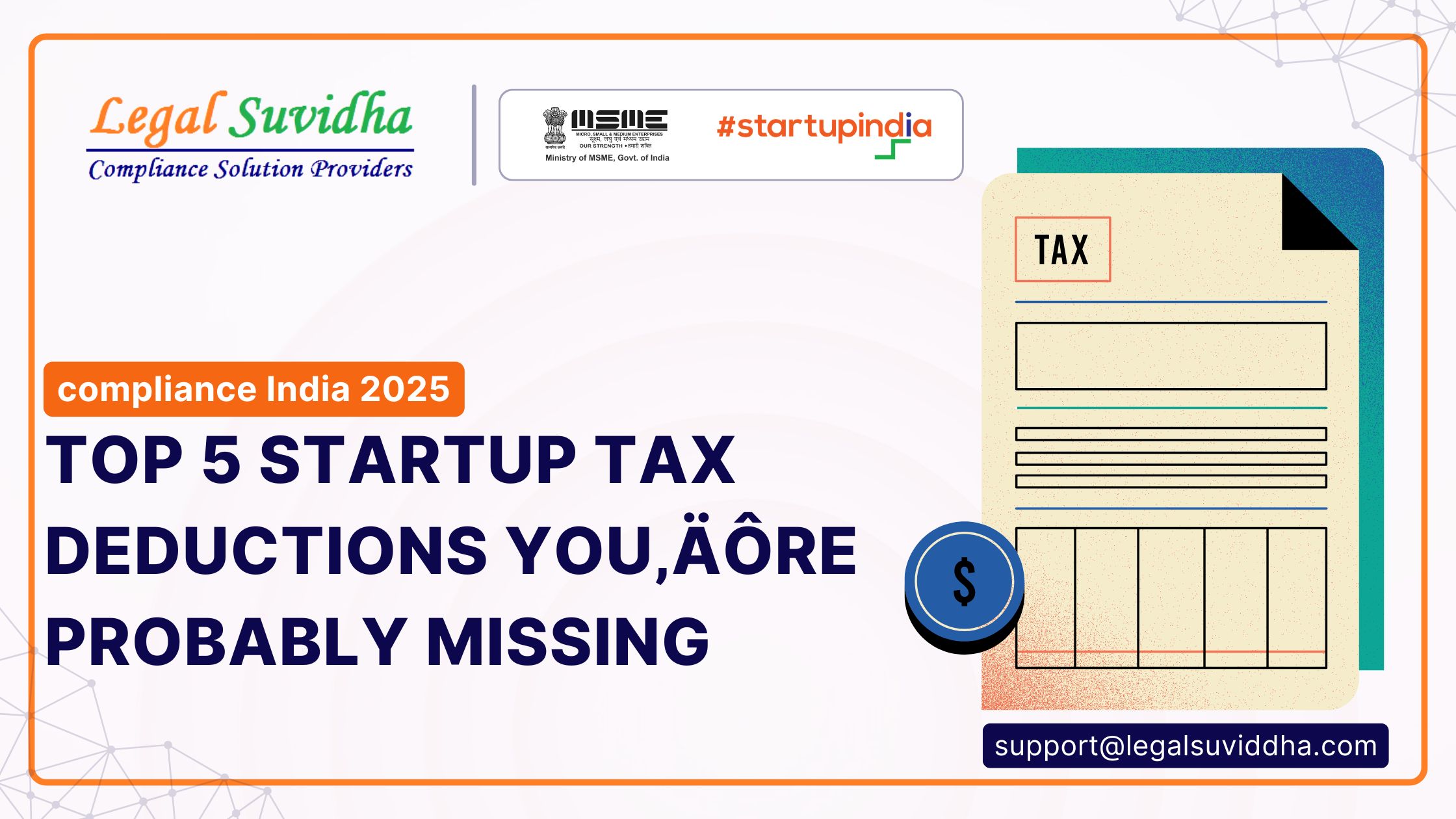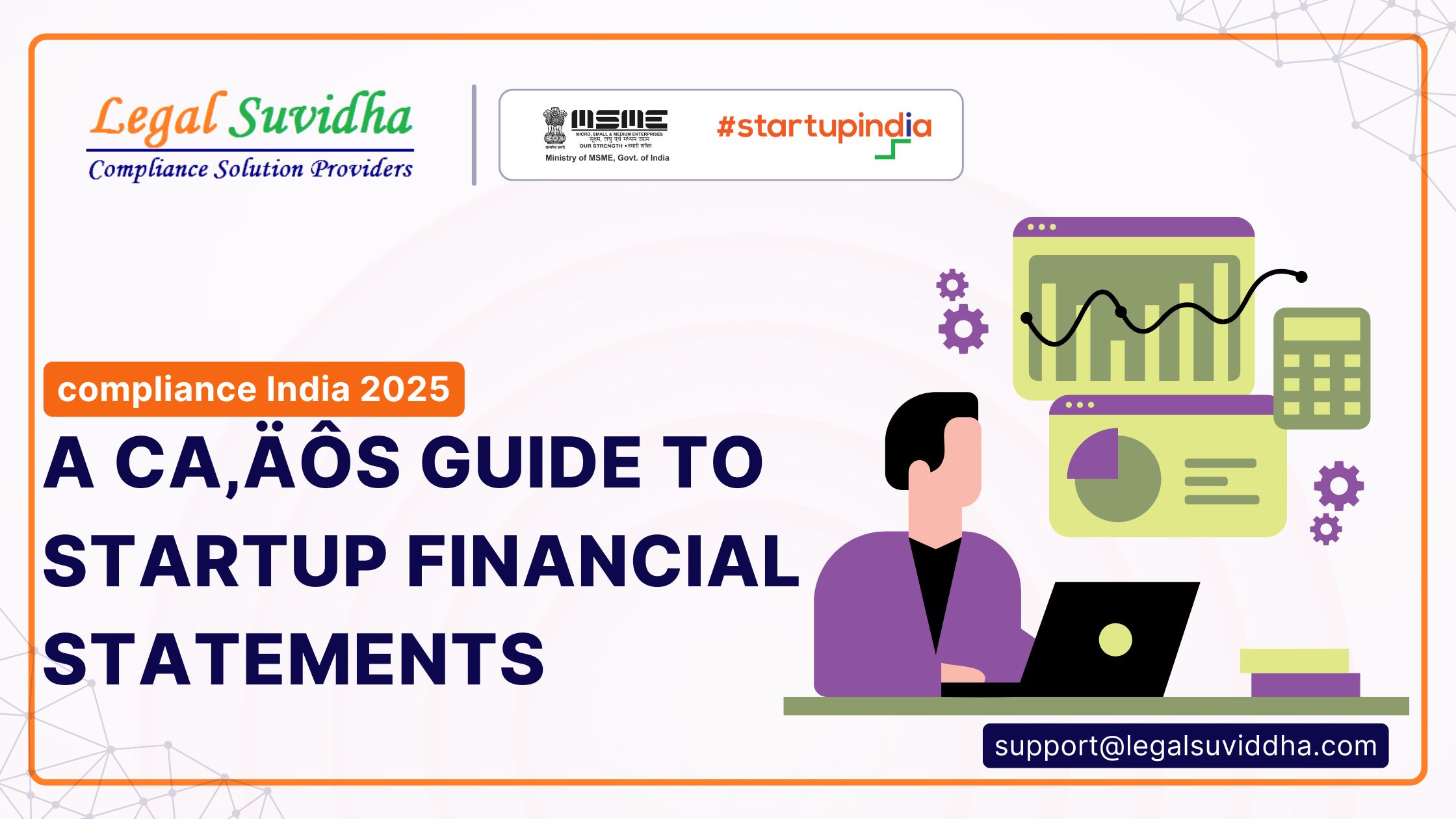As a taxpayer in India, you may have heard of Form 15G and Form 15H. These forms are used to claim exemption from TDS (Tax Deducted at Source) on interest income earned from fixed deposits, recurring deposits, and other fixed income sources.
Eligibility Criteria for Form 15G and Form 15H –
Form 15G and Form 15H can be submitted by individuals and Hindu Undivided Families (HUFs) to claim exemption from TDS on interest income. However, there are certain eligibility criteria that need to be met to submit these forms:
- Form 15G can be submitted by individuals who are below 60 years of age, and HUFs, whose total income is below the taxable limit, which is currently Rs. 2.5 lakhs per annum.
- For senior citizens who are above 60 years of age, Form 15H can be submitted if the total income for the financial year is below the taxable limit, which is currently Rs. 3 lakhs per annum.
- The Forms can be submitted only if the tax liability for the financial year is nil, i.e., the total income is below the taxable limit. If the total income exceeds the taxable limit, the Forms cannot be submitted, and TDS will be deducted at the applicable rate.
Understanding the difference between Form 15G and Form 15H –
Form 15G and Form 15H are self-declaration forms that can be submitted by taxpayers in India to avoid TDS deduction on their interest income. However, there are some key differences between the two forms that taxpayers should be aware of:
- Eligibility Criteria: Form 15G can be submitted by individuals who are below 60 years of age and whose taxable income for the financial year is below the basic exemption limit. On the other hand, Form 15H can be submitted by individuals who are 60 years of age or older and whose taxable income for the financial year is below the basic exemption limit.
- Threshold Limit: The threshold limit for Form 15G is Rs. 2.5 lakhs, which means that if the total interest income for the financial year is less than or equal to Rs. 2.5 lakhs, then the individual can submit Form 15G to avoid TDS deduction. The threshold limit for Form 15H is Rs. 3 lakhs, which means that if the total interest income for the financial year is less than or equal to Rs. 3 lakhs, then the individual can submit Form 15H to avoid TDS deduction.
- Number of Forms: An individual can submit multiple Form 15G forms to different deductors during the financial year. However, an individual can submit only one Form 15H to each deductor during the financial year.
- Validity: Form 15G & Form 15H are valid only for the financial year in which they are submitted. The individual needs to submit a new Form 15G/Form 15H for each financial year if they meet the eligibility criteria.
- Declaration: Form 15G requires the individual to declare that their estimated total income for the financial year is below the basic exemption limit and that no TDS should be deducted from the interest income. Form 15H requires the individual to declare that they are a senior citizen and their estimated total income for the financial year is below the basic exemption limit and that no TDS should be deducted from the interest income.
What are the consequences of submitting Form 15G/Form 15H when not eligible?
Submitting Form 15G or Form 15H when not eligible can have serious consequences for the taxpayer. The Income Tax Department considers such submissions as false declarations and can take legal action against the taxpayer. Here are some of the consequences of submitting Form 15G or Form 15H when not eligible:
- Penalty: The Income Tax Department can levy a penalty of Rs. 10,000 under section 277 of the Income Tax Act, 1961 for submitting a false declaration.
- Prosecution: In case of repeated false declarations, the taxpayer can face prosecution under section 276C of the Income Tax Act, 1961, which can lead to imprisonment for up to 7 years and a fine.
- TDS Deduction: If the taxpayer submits a false Form, the deductor can deduct TDS from the interest income at the applicable rate, which can lead to lower income in hand for the taxpayer.
- Interest and Penalty on TDS: If TDS is deducted due to a false submission of Form, the taxpayer may have to pay interest and penalty on the TDS amount, in addition to the TDS amount itself.
It is important for taxpayers to ensure that they meet the eligibility criteria before submitting Form 15G or Form 15H to avoid any legal complications. If the taxpayer’s income exceeds the threshold limit or if they are not eligible based on age or income criteria, they should not submit these forms to avoid TDS deduction.
Penalties for incorrect or false submission of Form 15G/Form 15H?
Submitting an incorrect or false Form can have serious consequences for the taxpayer. The penalties for incorrect or false submission of Form 15G/Form 15H are as follows:
- Penalty for incorrect submission: If a taxpayer submits an incorrect Form 15G/Form 15H, the Income Tax Department can impose a penalty under section 272 of the Income Tax Act, 1961. The penalty amount can range from Rs. 100 to Rs. 10,000, depending on the nature of the incorrect information provided.
- Penalty for false submission: If a taxpayer submits a false Form 15G/Form 15H, the Income Tax Department can impose a penalty under section 277 of the Income Tax Act, 1961. The penalty amount can be equal to the amount of tax sought to be evaded or Rs. 10,000, whichever is higher.
- Prosecution: In case of repeated false declarations, the taxpayer can face prosecution under section 276C of the Income Tax Act, 1961, which can lead to imprisonment for up to 7 years and a fine.
It is important for taxpayers to ensure that they meet the eligibility criteria before submitting Form 15G/Form 15H to avoid any legal complications. If the taxpayer’s income exceeds the threshold limit or if they are not eligible based on age or income criteria, they should not submit these forms to avoid TDS deduction. It is advisable to seek the help of a tax professional to ensure correct submission of Form 15G/Form 15H and avoid any penalties or legal consequences.
How to claim TDS refund for excess TDS deducted on interest income?
If excess TDS has been deducted on interest income, taxpayers can claim a refund for the same by following the below steps:
- Verify TDS details: Taxpayers should first verify their TDS details on Form 26AS available on the Income Tax Department’s website. Form 26AS provides a consolidated statement of TDS deducted on various incomes, including interest income.
- Calculate excess TDS: Taxpayers should calculate the excess TDS deducted on their interest income. This can be done by subtracting the actual TDS liability from the TDS deducted and reflected in Form 26AS.
- File Income Tax Return: Taxpayers should file their income tax return (ITR) to claim a refund for the excess TDS deducted. The ITR should be filed within the due date specified by the Income Tax Department.
- Claim refund: In the ITR, taxpayers should claim a refund for the excess TDS deducted. The refund amount should be mentioned in the appropriate section of the ITR.
- Verify ITR: After filing the ITR, taxpayers should verify it using their Aadhaar number, net banking, or other verification methods specified by the Income Tax Department.
- Check refund status: Taxpayers can check the status of their refund on the Income Tax Department’s website or through the Refund Banker Scheme.
It is important to note that taxpayers should ensure that they have submitted Form 15G/Form 15H (if eligible) to avoid excess TDS deduction. Additionally, taxpayers should maintain all necessary documents, such as Form 16A, bank statements, and other relevant documents to support their claim for TDS refund.
If You have any query then connect with us at [email protected] or you can contact us & stay updated with our latest blogs & articles.

